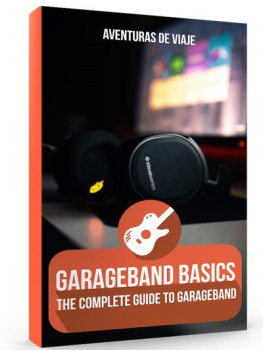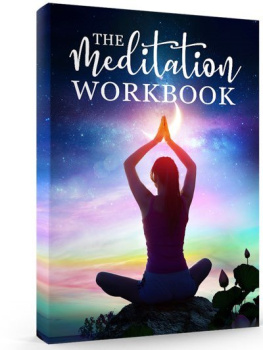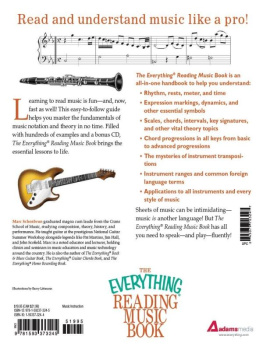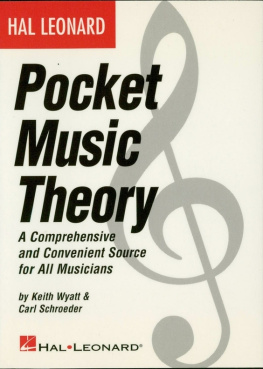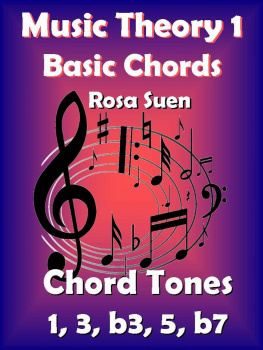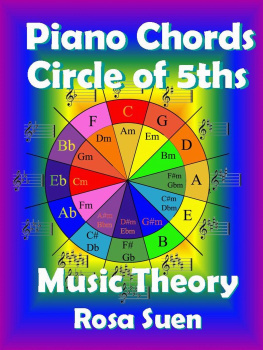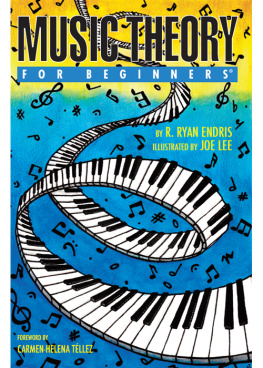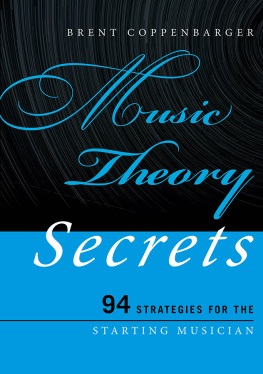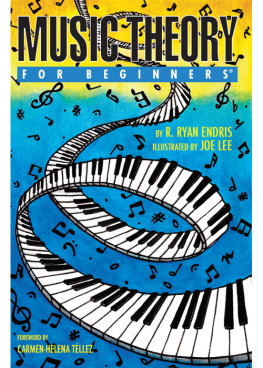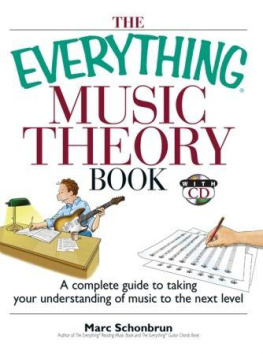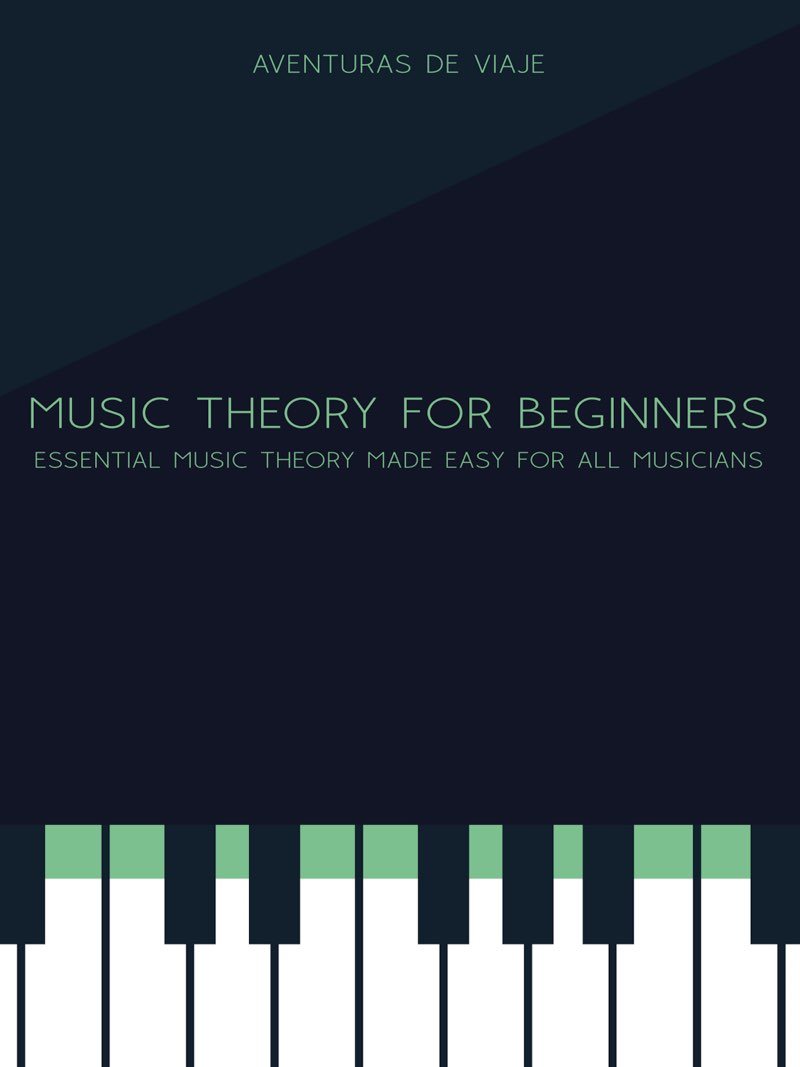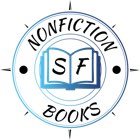Music theory is the science of musicthis science attempts to understand and document the patterns in music, why they exist, and how to bend them to our will. After all, music is a highly advanced and well constructed form of art that involves countless moving parts created from math, physics, and acoustics. Understanding music takes time, patience, and effortspend 10 minutes researching it and youll notice that. The beautiful thing about music is that by learning more, it gets easier. It isnt like learning math in school, where one moment youre learning 2x2 and the next youre into calculus. No, music becomes less challenging the further in you get. This guide will help you through those first difficult steps, here we will break through the wall that so many others stop at. Not long from now, youll look back at this first paragraph with all the tools needed to play, read, and understand music!
What makes this book different from others in music theory, is that instead of catering to experienced musicians, here we are catering to non-musicians. There are no needlessly complicated terms here, no confusing jargon, no assumptions of knowledge. The books in this genre also tend to ignore popular types of music. Many experts like to think that music theory is only for classical and jazz musicI dont. In this book, well be covering the topic in a way that allows you to apply it to any genre, any style, and any instrument. It doesnt matter whether you play jazz with a piano, metal with a guitar, or electronic music with a laptop, youll still be able to apply the things you learn here to your craft.
SO WHAT IS MUSIC THEORY ANYWAY?
If youre here, you are clearly someone that is excited about the concept of music theory. Youre excited by this almost mystical concept, but this source of knowledge that has the potential to make you a better musician. A source of knowledge that may even allow you to play like the musicians you look up to. You may be excited by the prospect of spending hours studying concepts, names, music, and working to apply those things. Or you might not be excited for that part, thats fine too. There are very few people who like to struggle, it's human to want the easy way. Now, Im not saying music theory is easy, but there is definitely an easier way to learn it.
What is Music Theory?
From where you stand right now, music theory may seem completely alien to youdistant, intimidating, and very time-consuming. You may feel like you dont want to spend weeks and months of your life learning something that may or may not turn you into the musician you always dreamed of. You may even feel that music theory is something best left to the experts, the professors, and the naturally gifted. Its clearly not meant for us, right? Us lowly musicians who fiddle with our instruments and get excited over things as minor as playing a chord properly. The thought may even cross your mind that learning musical theory is more trouble than it's worth, it may even strike you as something that takes the raw beauty away from music and turns it into a dull science.
Well, youre wrong. This book does not exist to make music theory even more enigmatic, I did not write it to make you struggle more. No, this book exists to make your life easier in every way. Whatever your attitude going into this, you will learn everything you need to become the musician youd always hoped to be. Instead of sucking up all the fun and creativity out of music, the concepts in this book will allow you to look at music from a perspective you have never seen before. In the same way that a great chef is able to make great food if he knows his craft, a great musician can make great music if he knows his. By learning music theory, you amplify your ability to make incredible music. By knowing what to look for, what flavors compliment each other, and what ingredients to use, you can crank your expressive potential all the way up to 11.
That is musical theory. It is the knowledge of all the tools and ingredients needed to open your horizons as a musician. Its not a textbook that tells you what to do, it rather trains your ear and hands to allow you to better create what you want to create. All theory is harmony, rhythm, and melodythese are the key structures of sound and allow us to organize seemingly random sounds into music. Knowing these key building blocks will make you a better musician.
Why is it Important?
While many people may think that music is something that can start on any note, travel to any place, and end whenever the performer decides, thats not necessarily true. Although it's definitely true that some compositions do follow this path, they are mostly confusing, unpleasant to listen to, and without any form of direction. Musicians that create music like this tend to do it to prove a point or make a statement, rather than actually create music.
To be able to create compositions and improvisations that play and sound great, you need to know your music thoroughly. You need to be able to place notes and chords next to each other in a way that sounds pleasing and makes sense to your audience. And of course, because music is the one universal form of communication, it is pretty important that the music you make, makes sense.
In all honesty, the importance of learning music theory is as much a motivational thing as it is a technical thing. There are times where you feel like youre getting nowhere with your instrument, times where everything just feels a bit overwhelming. Well, those are the perfect times to sit down and read. Focussing solely on technical practising is a path that leads to madness. There is nothing that can equal the feeling you get when you realize that you are able to construct music out of nothing. And, that feeling wont come from only technical practising, you need to have a strong theoretical backing for that.
Keep in mind, as a musician, you only get out as much as you put in. If you want to be able to play along with classical musicians, you need to know how to read by sight and keep a steady tempo. If you want to keep up with your favorite rock stars, you need to know your keys and scales. Understanding music theory is all down to personal discipline and a want to be better. But, in the end, it's all worth it. Playing music is fun, and youll have infinite fun if you can create your own music.

